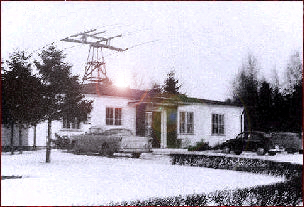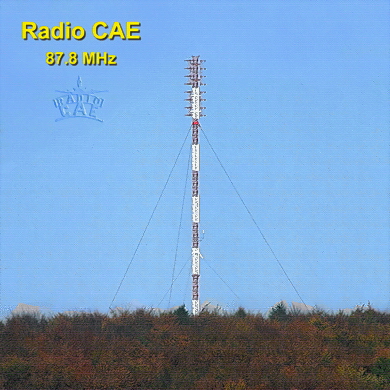Top News
Update 2020
50 years ago Radio CAE quit the airwaves forever...
Celebrating this anniversary we prepared a film about Radio CAE starting on October 18th 2020 at 11:30 p.m. CEST (central European summertime) presenting a portrait of the station up to midnight, when the original closedown from 1970 could be relived again.
YouTube: https://youtu.be/BkuYEtXMcoI
Vimeo: https://vimeo.com/468493345 (best quality, no commercials)

At the end of the 1940's, when the German radio network was rebuilt, there was one crucial player: the Armed Forces Services of the Allies.
Primary was the AFN, mainly transmitting from Southern Germany and the British BFN (later BFBS) in the North-Western regions. Other, smaller "exotic" stations for Canadian, French or Belgian troups followed.
All these stations had one thing in common: they transmitted current music and high quality entertainment directly into the German cultural "desert" after WW II. Those speaking a little English were immediately hooked by the cool style of this direct radio, which also was to have a strong influence on the development of the upcoming youth movements. In spite of many attempts, German radio failed to become modern. Everyone who really wanted to be up-to-date tuned in to the soldiers radio.
While the AFN was covering nearly all of Germany with 49 AM-transmitters, of which the last one was finally stilled in early 2016, BFN switched immediately over to the new high-frequency FM-band, which promised, in spite of a smaller broadcast range, a much better sound quality.Top
One little FM station, which later should turn out to be one of the most popular "exotics", was Radio Canadian Army Europe, shortly called Radio CAE, the service for the 2nd Canadian Infantry Brigade in Westfalia. Located east of the Ruhr Valley near the old Hanseatic city of Werl, the station covered in spite of a relatively low output of 250 watts the whole Munsterland, the complete Ruhr Valley down to the River Rhine and the northern parts of the Sauerland, a region with millions of potential listeners.
For the history of this website with all events please click on NEWS ARCHIVE on the radio-scale below...
